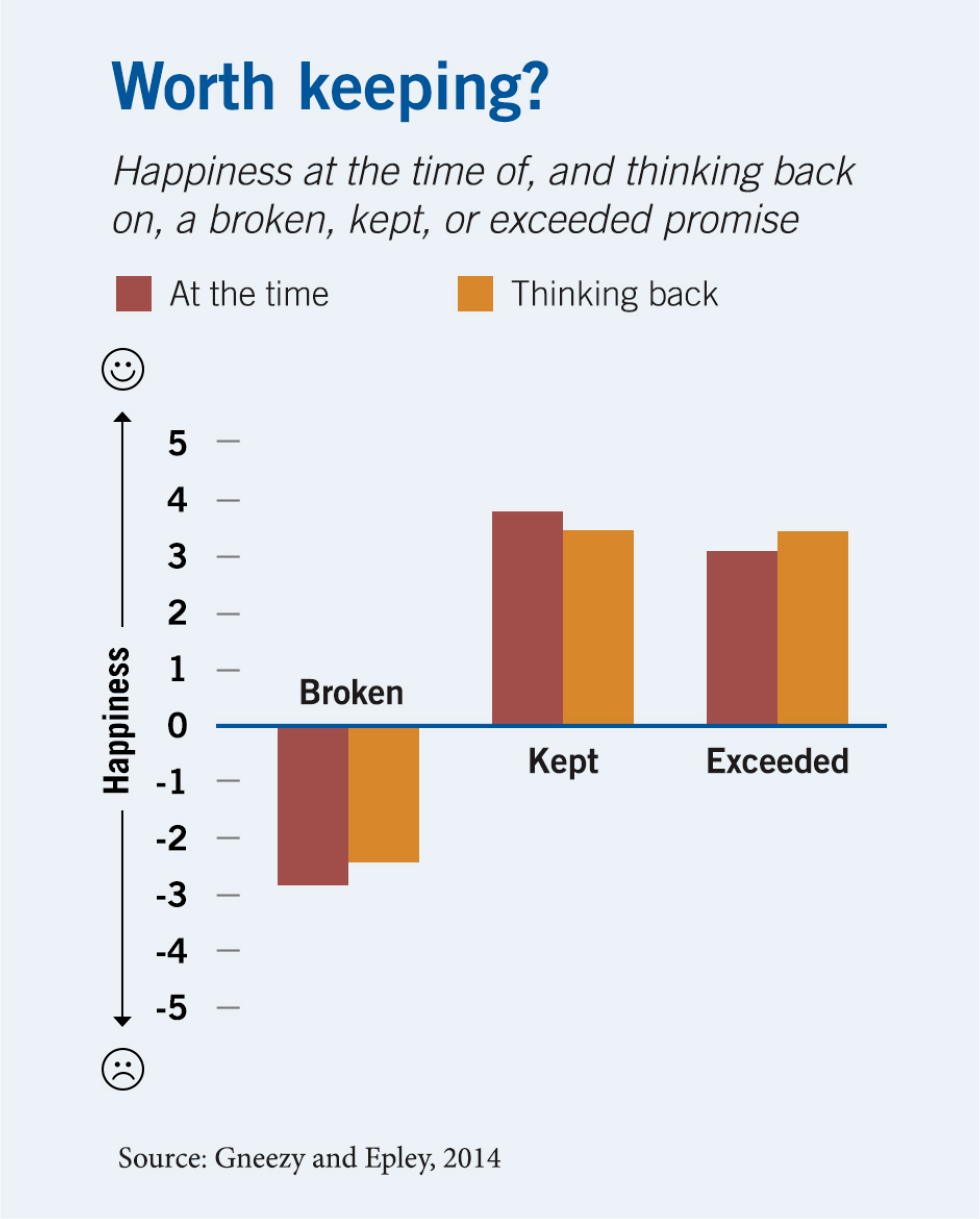
Money Can Inspire Effort More Easily than Insight
Cash is only an effective incentive for certain types of tasks.
Money Can Inspire Effort More Easily than InsightWhy businesses should work to keep their promises
Breaking a promise is costly, but exceeding it might not be worth the effort.

Companies laboring to exceed promises made to customers or employees may find that the extra effort is not appreciated.
Ayelet Gneezy and Nicholas Epley, “Worth Keeping but Not Exceeding: Asymmetric Consequences of Breaking versus Exceeding Promises,” Social Psychological and Personality Science, May 2014. Chart reprinted with permission from Sage Publications. Copyright 2014.

Cash is only an effective incentive for certain types of tasks.
Money Can Inspire Effort More Easily than Insight
The answer affects financial planners, caregivers, and many other surrogate decision makers.
Why We’re So Bad at Making Choices for Others
The “endowment effect” influences how people process information.
People Overreact to News about Stocks (and Other Things) They OwnYour Privacy
We want to demonstrate our commitment to your privacy. Please review Chicago Booth's privacy notice, which provides information explaining how and why we collect particular information when you visit our website.